Comments
- No comments found

The best storytellers know how to keep their audience hooked by introducing new concepts, adding twists, and inspiring people.
We live for stories. It doesn't matter a person's age; stories are things we love to read, watch or hear.
Telling a good story is the best way to entertain, make a point, negotiate, get a promotion, or build relationships. Epic stories of success, conflict, romance, and adventure enthrall us. Constructing and telling a good story is often the dividing line between being good at what you do and being fabulous.
If you are in business or trying to market yourself and your services, you might ask how this applies to you. Imagine being back in school or participating in a training course. What instructor or teacher made the biggest impression on you? I would bet money that it wasn't the one who had an endless number of charts and statistics, it was the one who told stories to illustrate their points. As you think about it, they are likely the classes you got the most out of and you remember what they were about.
In your career, there are so many ways to use stories in marketing and advertising, but I want to concentrate on the times when you are trying to reach people directly. Think about the times you are either teaching others or increasing your influence with your peers, clients, or general audience. Relaying stories about yourself or your experiences will strengthen your connections, as well as draw newcomers into your orbit. Here are some tips for crafting a good story:

When you tell stories to your audience, you are relating with them and showing empathy. A narrative is the best way to connect and bring them into your world. Depending on the story you are telling, you are putting your audience in your shoes, so they see things from your perspective.
Think of any time you have gotten lost in a movie or book. A well-crafted book or movie pulls you into the plot. You identify with the main characters. You are rooting for them to succeed. Likewise, you can find yourself getting incredibly angry at the villain of the story. Books and movies can be very emotional experiences. Touching on that emotion is what you want to do with your storytelling.
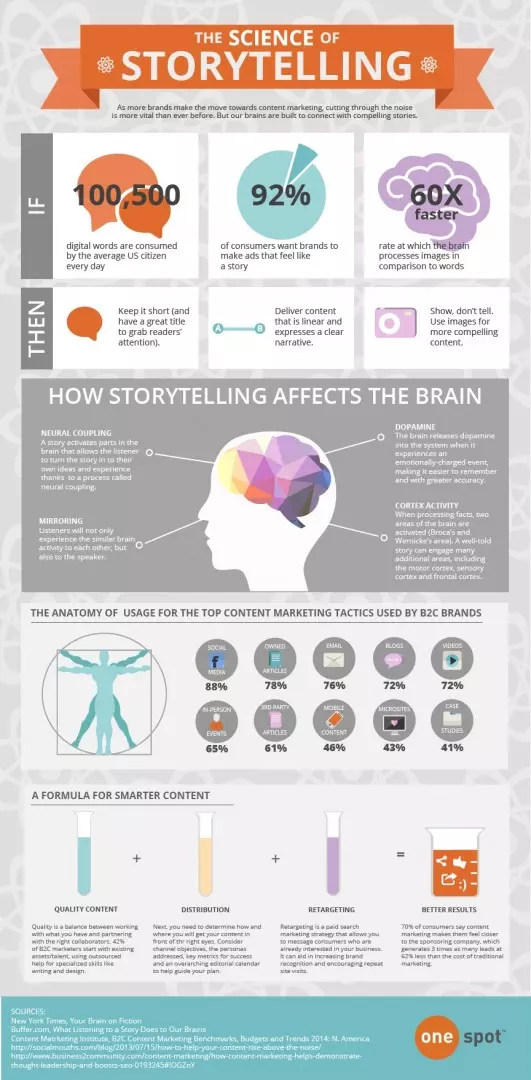
Source: One Spot
Each story you tell must have a point. It might be to get your audience to relate with you better, to strengthen a teaching moment, or to get your audience to laugh and relax. Stories are genuinely multi-dimensional in how you can make them work for you.
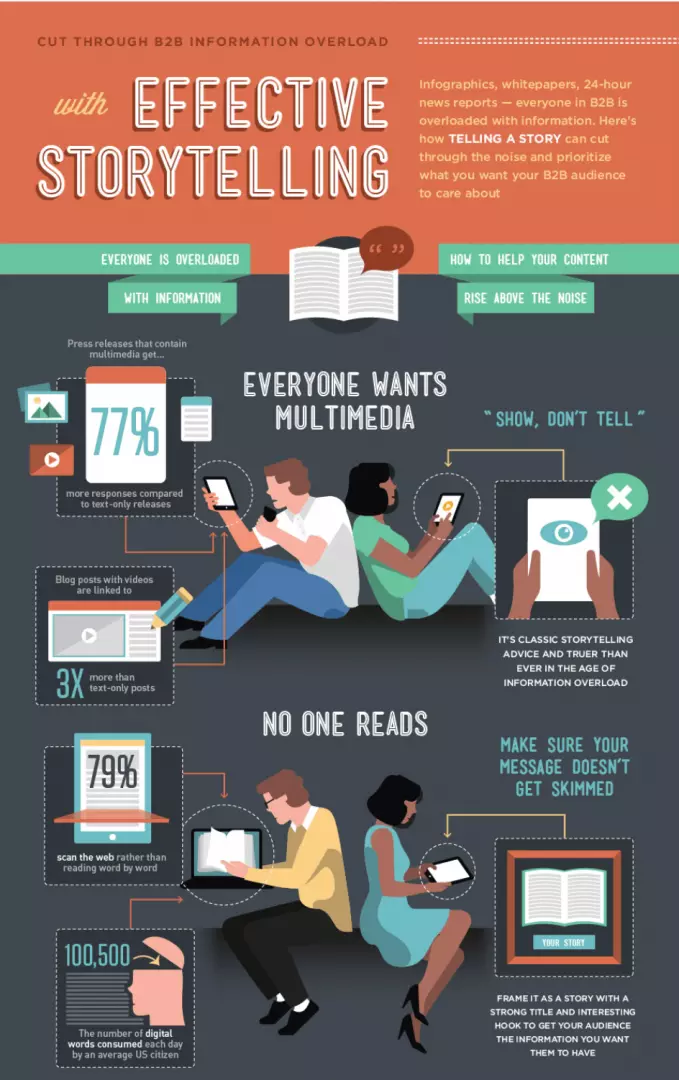
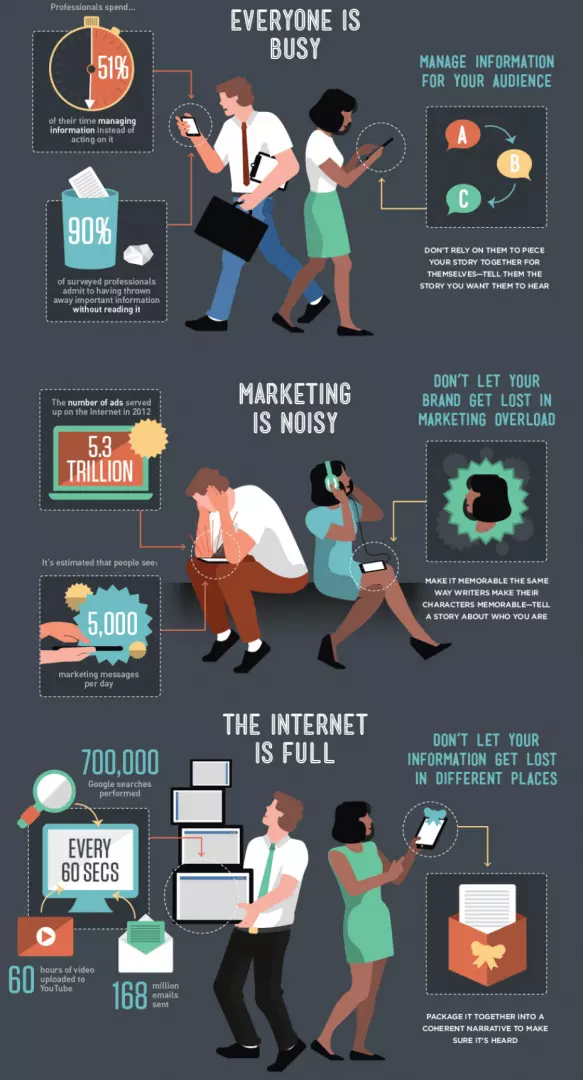
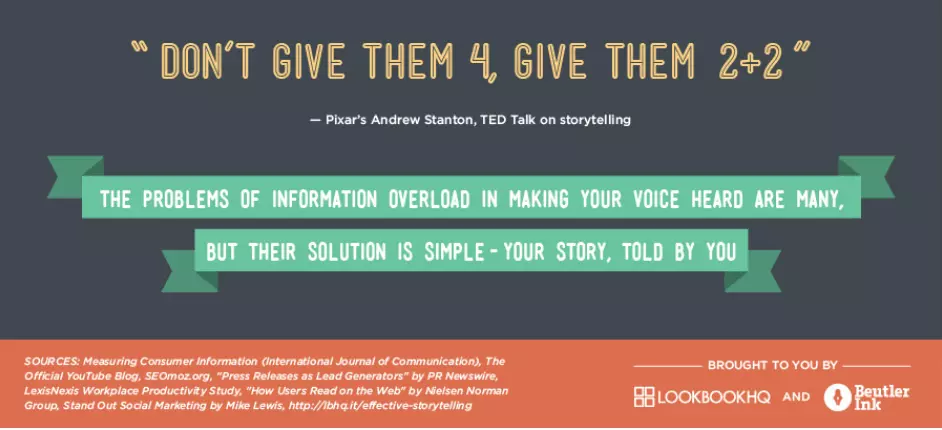
Source: LookBookHQ
While some folks have the gift of storytelling, most of us have to give some thought to a story's construction. Writing it down allows you to refine and develop the narrative you want to share. By taking such an academic approach to composing an account, you train yourself to become an instinctive storyteller. If you do this enough, storytelling will become a natural approach to how you communicate. You will still be taking the same steps you always have in assembling a story, but it will become more automatic. Think of it like driving a car. In the beginning, a new driver is very conscientious of every step involved with driving and parking. After doing it for a while, a driver is still doing everything he or she has learned, but it feels automatic.

Something I learned in grade school is still fundamentally important: Your story needs a beginning, a middle, and an end. It needs at least one central character and the character needs to be doing something interesting. Your ending needs to reflect whatever you set as the goal of the story. It could be very profound or something silly, but should serve a purpose.
Also, know that you don't need to put all your effort into one big story. As you communicate with your audience, you could be telling them a series of stories that build on one another. If you grab them with your first story, they will hang on every word as you move through the rest of your message. Utilize the power of your storytelling so that they want to hear your next tale.
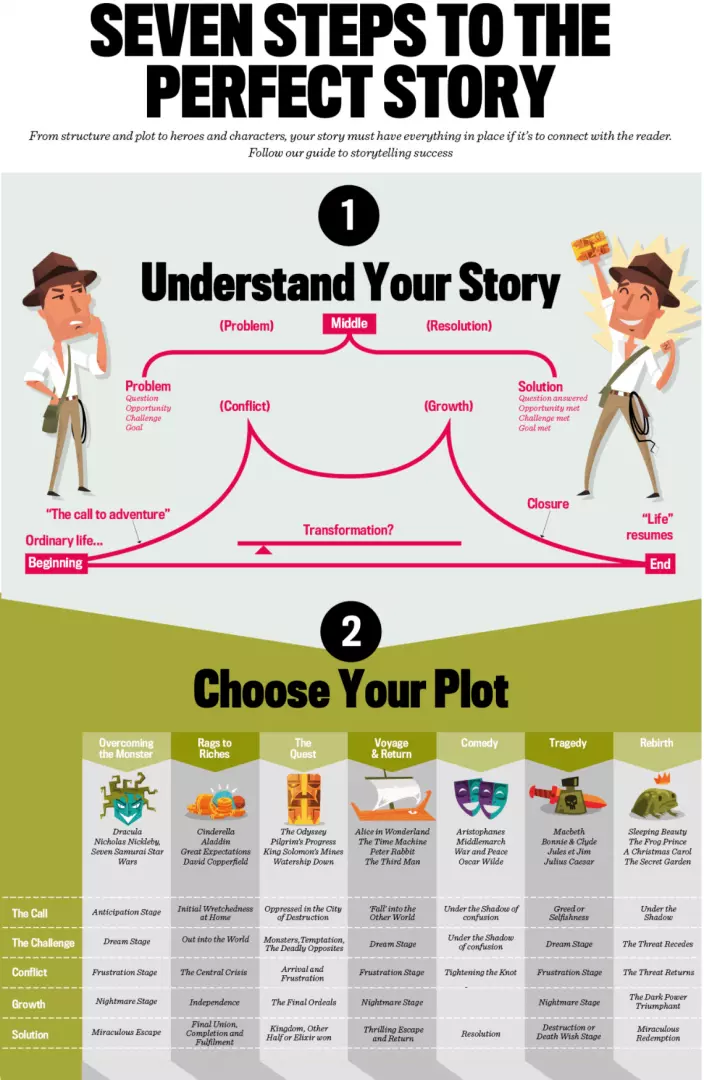
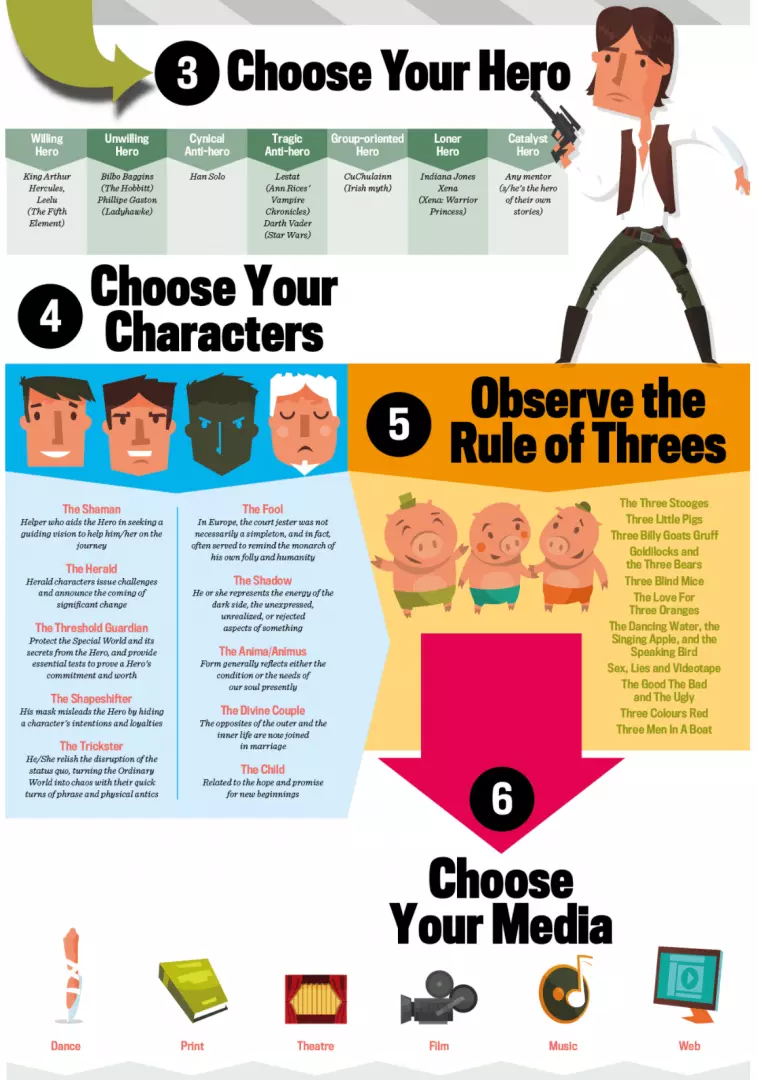
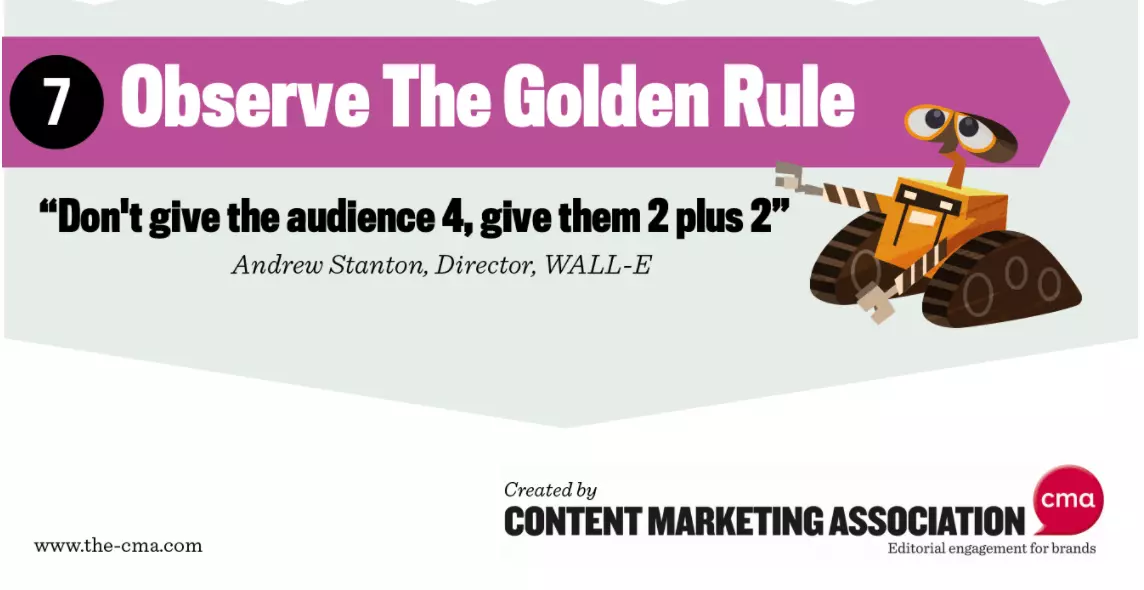
Source: Content Marketing Association
There are many platforms to deliver your stories. If you share them through your writing, you have the luxury of editing them and getting what you want to say exactly right before you put them out there. The same is true if you are doing a video or a podcast or anything you record to share with others. If you are speaking or teaching a class, practice your stories before sharing them in a presentation. Live stories take an extra degree of discipline. I have sat through events where the presenter begins to go down rabbit holes in the middle of storytelling. After a while, nobody — you, the rest of the audience, or even the presenter — knows the point of the story! Practice will help you to stay the course.
Storytelling is a skill that will help you in whatever you do. If you want to connect with a group or an individual, work on becoming a master storyteller.
Divya Parekh is an international Executive Leadership Coach and #1 bestselling author. She is CEO of The DP Group, LLC a global coaching and consulting firm that provides leadership and team development services as well as corporate coaching. Having success in four major career paths, Divya has the expertise and knowledge of real world business backed by a proven record of success. Divya brings over 25 years of rich and extensive experience in academia, the biopharmaceutical industry, and as a global executive and leadership coach. In each of her many roles, she has empowered leaders with breakthrough insights, talent development strategies, and measurable business outcomes. During her biopharmaceutical journey, Divya led successful multi-million dollar projects from concept to completion in a fast-paced and competitive environment. Divya knows what it takes to initiate communication channels that cut across departments, improve cross-functional collaboration, and leverage scientific principles, technical skills, and Lean Six Sigma problem solving tools to measure, evaluate, and improve the productivity of leaders and teams. Divya has guided many seasoned executives, leaders, and management personnel into realizing their goals by creating a cohesive plan to reach their next level of accomplishment. She believes the key factor in leadership success is the partnerships we cultivate. She helps others to learn the exponential power in developing a thorough understanding of their business partners to build resonant relationships and a foundation of mutual trust and safety. Working with cross-functional groups, she inspires them to morph into high-performing, collaborative teams. Her technique utilizes measurable assessments, a supportive delivery method and a bit of pointed accountability that ensures the success of both leaders and professionals in the organization. Divya coaches leaders to cultivate interdependence between themselves and their internal and external stakeholders to achieve a combined mastery in connectivity and alignment through complex business and personal challenges. When people function in an environment of mutual trust, Return on Energy and Return on Investment flourish both in business and life. Divya is the recipient of Worldwide Branding VIP of the Year in 2013 as well as NAPW VIP Woman of the Year in 2014 for showing dedication, leadership, and excellence in leadership coaching. Additionally, Continental Who’s Who named her as a Pinnacle Professional in the field of coaching and consulting. As a Forbes Coaches Council Official Member, Divya is a regular contributor to Forbes. Divya is also the author of numerous leadership and entrepreneurial books. Her books include Stress Management, Mindfulness Mastery, Critical Thinking, Candid Critique, Appreciative Inquiry, Leadership and Influence, Emotional Intelligence, and her newest book, The Entrepreneur's Garden.
Leave your comments
Post comment as a guest